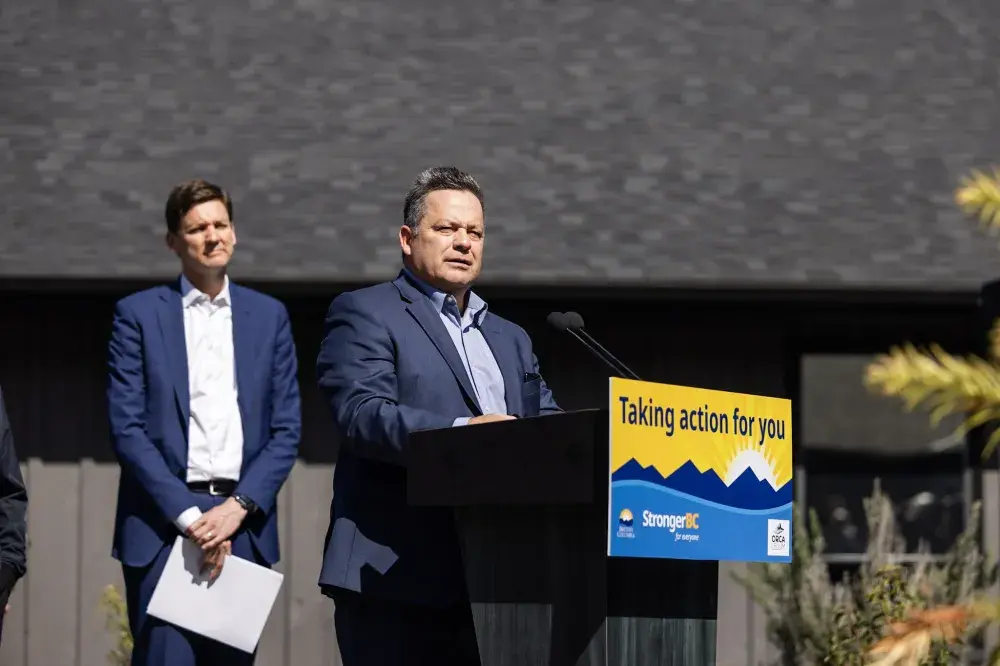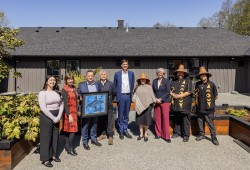Funded by both the provincial government and Island Health, Orca Lelum Youth Wellness Centre will open its doors to Indigenous youth aged 12 to 18 for detox and stabilization services, as the first of its kind in the province.
“The toxic drug crisis is a tragedy, one that disproportionately affects Indigenous people,” said Premier David Eby, in a recent press release. “Rooting treatment for addictions and mental-health issues in Indigenous knowledge has the power to transform a young person’s life.”
“Orca Lelum Youth Wellness Centre will provide that support, and our government is proud to support such an innovative approach to help vulnerable youth,” continued Eby.
Amid a toxic drug crisis that has plagued the province, First Nation people are six times more likely to die from drug poisoning. In the spring of 2023, the First Nations Health Authority (FNHA) announced 2022 as the most devastating year for First Nations amid the crisis, with 373 deaths from toxic drugs.
According to reports from the BC Coroner, 184 youth under the age of 18 have lost their lives due to the toxic drug crisis since 2016, but only one death has been reported by the BC Coroner so far this year.
“It's hard to put the word excited or happy towards such a crisis, but we're happy that we're trying to work with a solution,” said Bill Yoachim, executive director for Kw’umut Lelum Child and Family Services, which oversees the Orca Lelum Wellness Centre.
The centre will operate a total of 20 beds. Half will be dedicated to short term detox and stabilization, and the remaining 10 will be incorporated into a 10-week holistic and culture-based treatment program.
“What we’re hoping to do is have a detox available and ready, and then from there on slide right into the treatment portion of the 10-week program,” said Yoachim.
For those utilizing the short-term beds, they will also have the opportunity to go into the 10-week treatment program, said Yoachim.
The detox beds also have the flexibility to fluctuate in the number of short-term detox spaces to the number of long-term treatment beds, he added.
According to the press release, in June the Orca Lelum Wellness Centre will begin opening in phases, though operations are expected to reach full capacity this fall.
With the treatment program operating up to four times per year, trauma and grief services are available for clients during the time the 10-week program is not offered. The centre will accept drop ins and continuous intake.
In an email to Ha-Shilth-Sa, Chantel Nelson, office manager and executive assistant at Kw’umut Lelum Child and Family Services shared that Orca Lelum will be open to all Indigenous youth, though they will first focus on Vancouver Island, then later expand throughout all of the province.
“Having the access to detox that’s, first of all on Vancouver Island, is extremely important because most detox services are on the mainland or are really far away,” said Jaimey Richmond, a harm reduction outreach worker with Usma Nuu-chah-nulth Child and Family Services, who works with youth aged 13 to 27. “Especially for youth that are living in remote communities it can be quite the commute.”
According to Yoachim, Kw’umet Lelum serves members of several Nuu-chah-nulth nations who live in the Nanaimo region.
“We take our Nuu-chah-nulth relationship real serious,” said Yoachim. “We’re all intertwined.”
For Richmond, Orca Lelum reflects an organization that can not only address substance-use, but all aspects of health, inclusive of cultural wellness.
“That includes having that understanding and that background of all of the things that affect our youth, especially our youth in care,” said Richmond, noting the toll of intergenerational trauma, residential schools, foster care, and addiction in the family.
“That center is going to understand that and how that plays into their life today,” added Richmond.
“We have been in a toxic drug crisis, and we do know that it disproportionately affects Indigenous peoples and especially Indigenous youth,” she said. “To me, this program, even opening its doors, is an avenue of hope for the future and leading the way in a positive way.”
“Let's work together and give these young ones the fighting chance of [an] amazing life they deserve,” said Yoachim.


